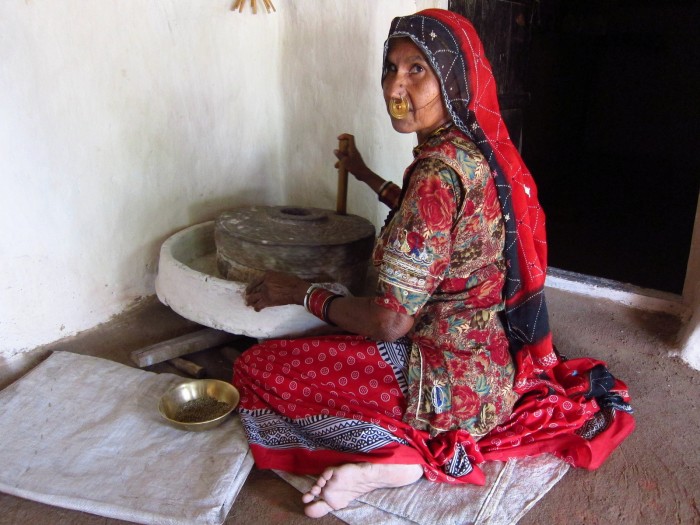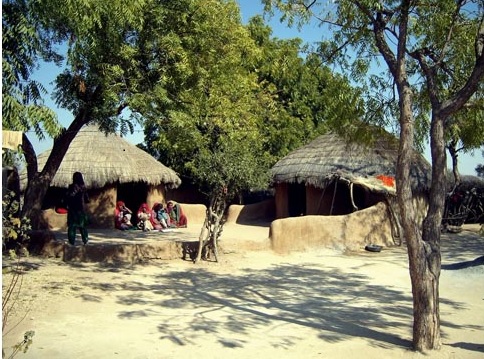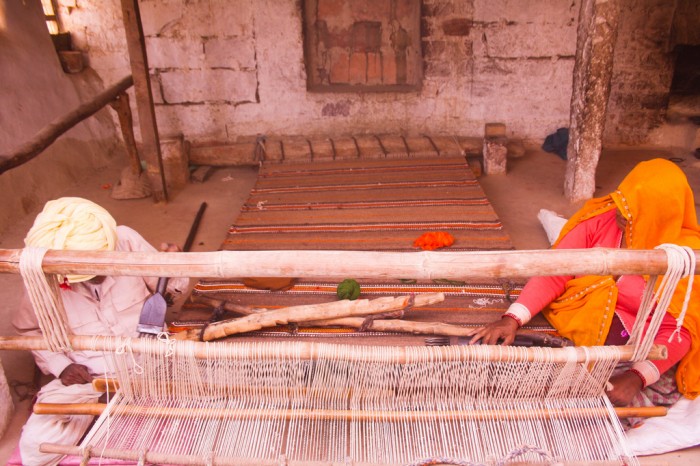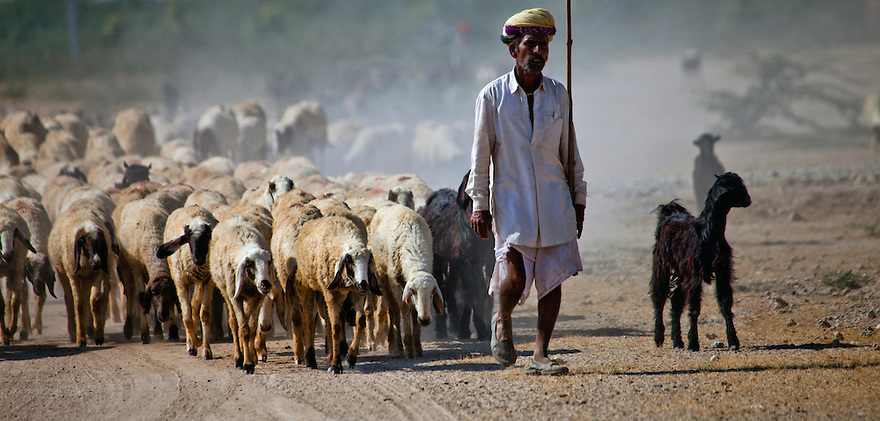There is no doubt the state of Rajasthan in India is a famous tourist destination. The major reason for its popularity is the unique cultural and rich heritage aspects of the state. For this purpose, a tour to Bishnoi Village in Jodhpuris a must. Located just at a distance of 22 km from Jodhpur city, the villagers of Bishnoi are basically hardcore worshippers of nature. On Bishnoi Village Safari, one gets more than a glimpse of amazing cultural life of Marwar – the original community of Rajasthan.
History of Bishnoi Village
Bisnoi village sect was established by Guru Jambheshwar who was born in the year 1451. The sect was founded after disastrous effects of constant battles between local Hindu population and Muslim invaders. For his followers, 29 rules, regulations and principles were given by Guru Jambheshwar. The primary law was to conserve animals and trees to completely abolish the practice of hurting environment. On his death, he proclaimed that black buck is his manifestation and hence the species must be conserved rigorously.
Culture of Bishnoi Village

A Bishnoi woman grinds flour in a village near Jodhpur, India. Photo courtesy of Flickr/fabulousfabs
• Nature Lovers: Bishnoi villagers are particularly keen to protect nature, especially plants and animal species.
• Religion: They are worshippers of Lord Vishnu. Another fact about the Bishnoi tribals is that they worship Lord Vishnu.
• Food: Their diet constitutes of pure vegetarian dishes.
• Costumes: Their dress costumes are designed to bear the hot weather. The men traditionally wear white dhoti, shirt and colorful turbans. Unmarried girls generally wear pada, pothdi, puthia and odhna. The costume of a married woman constitutes of odhna, ghaghra, kanchli, kurti and dhabla. Large circular Nose-rings is a common feature which can be seen on married women. Blue-colored clothes are not allowed to be burn as to give the color a large quantity of shrubs had to cut down.
• Crops: Opium is grown for religious purposes. The major dietary crop grown is pearl millet (bajra) during monsoon season.

• Houses: The local people generally stay in small hamlets which are called by locals as Dhani. The small huts have thatched roofs. In the hamlets, the floors made from mud are plastered with cow dung to avoid the growth of vermin. The villagers are very keen and adamant regarding the cleanliness of their hamlets and always keep every inch of interior neat and tidy. Nearby, the hamlet, the villagers build a granary to protect their crops and food supplies especially during monsoon seasons. Also, there is a sump nearby each hamlet where the villagers store large quantities of water.
Attractions of Bishnoi Village:

Carpet weaving is an important part of life in a Bishnoi community in Rajasthan, India. Photo courtesy of Flickr/ sushmita balasubramani
• Salawas (Weavers village): This is the place where the weavers work together to create the “magic carpets”, locally referred as “durry”.
• Singhasni (Muslim religion Potter’s village): Some of the finest works of pottery can be seen on a tour to this location.
• Khejarli: This historical location is a popular tourist attraction when on a Bishnoi village tour to Jodhpur.
• Gudha Village: This is the finest location to enjoy wildlife species like Antelopes, Dumessille Crane, Gazelle, Rabbits, Peacocks, Blue Bulls, etc.
• Guda Bishnoi Lake: The serene lake is a fascinating location to witness numerous bird species including domicile Cranes, blackbucks, chinkaras, etc. Blackbucks can also be found here.
• Shepherds Village: Tourists come here to catch real live photographs of village lifestyle. UNICEF sponsored health center is also located here.
Interesting facts on Bishnoi Village:
- Growth of opium is banned by the Government of India, but still various sects of Bishnoi villages have special permission to do so for religious purposes.
- A famous historical incident of Bisnoi village is Khejarli Massacre which took place in the year 1730 when 363 Bishnois gave away their lives to protect their precious trees which were being cut by Raja’s troops. The villagers refused to move away from the trees and kept hugging them. Their brave act was honored by Maharaja Abhay Singh who officially asked for an apology and punished the responsible.
- Best Environment Film award winning movie, “Willing to Sacrifice”, is based on the life story of Nihal Chand Bishnoi who gave his life away in the month of October in 1996 to protect wildlife species. The film received the honor at 5th International Festival of Films, TV and Video Programs which was held at Bratislava, Slovakia.
- Since cutting of trees is completely prohibited by Bishnois, they do not burn or cremate their dead ones but instead simply bury them.
- Bishnois are very adamant regarding protection of flora and fauna and may get a little aggressive if they found someone violating the laws.



